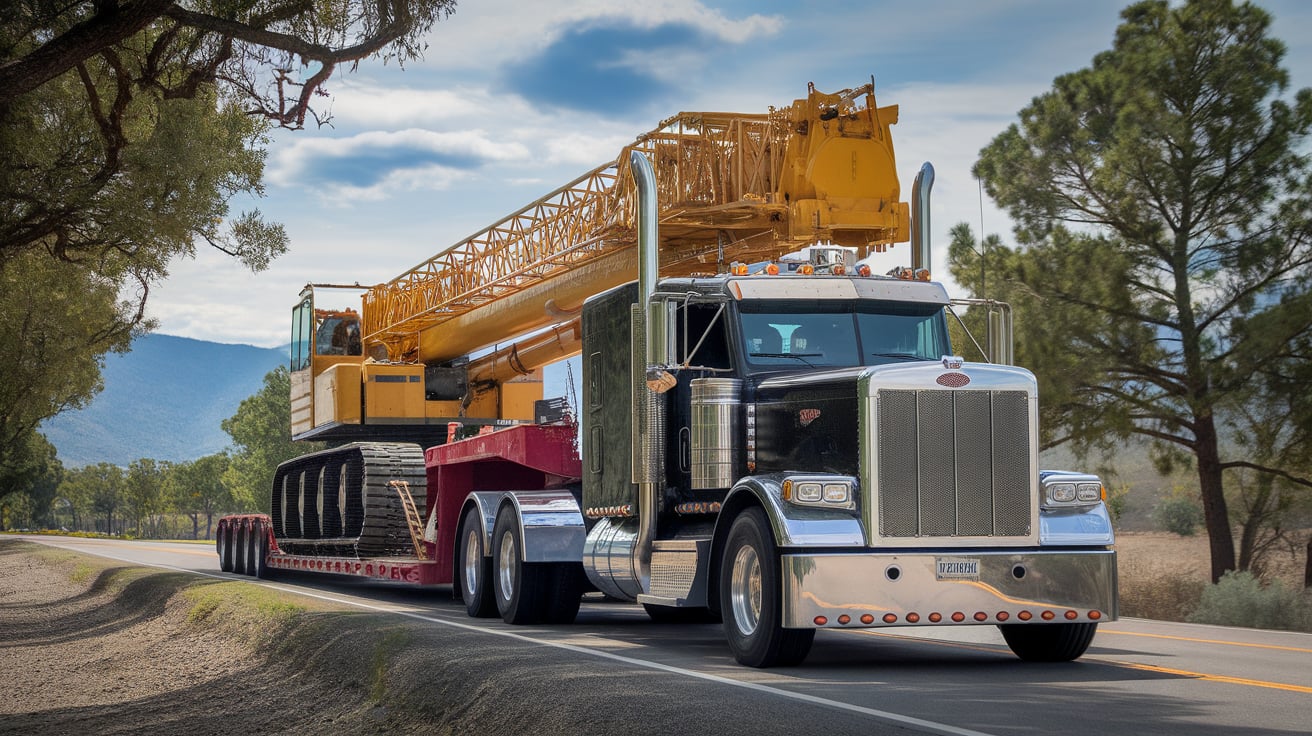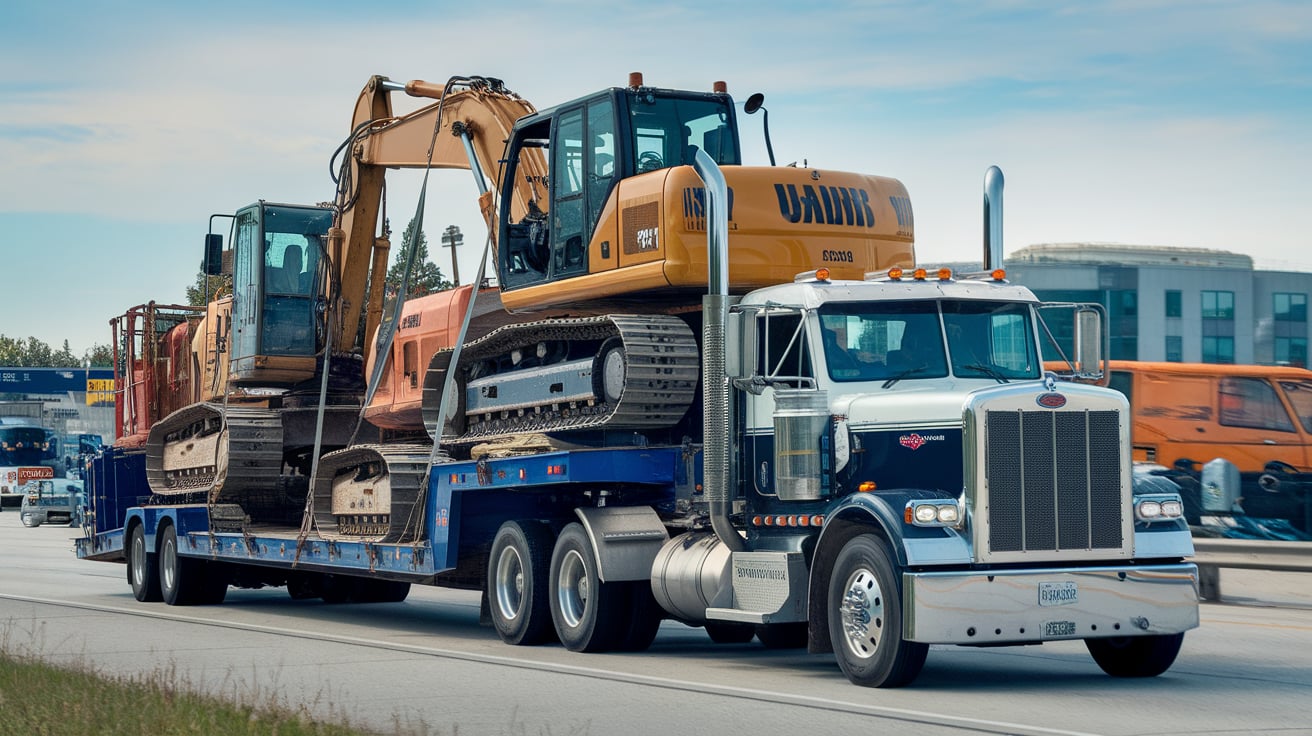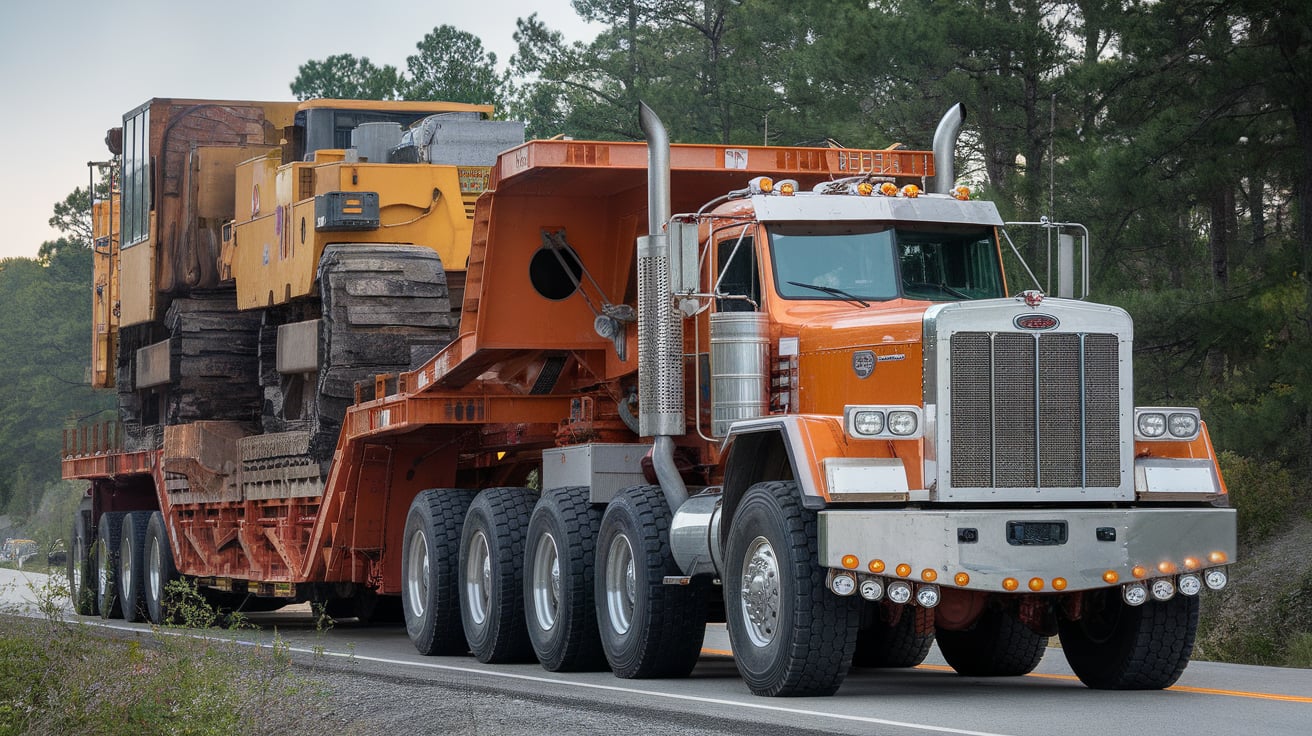Why Safe Trucking Practices Matter for Your Heavy Haul in Connecticut
Freedom Heavy Haul can offer expedited Pickup and Delivery for any size shipment anywhere in the USA. Contact us today for No Hassle, No Pressure Pricing.
Heavy haul trucking is an essential part of your business operations, ensuring that oversized and overweight loads reach their destination safely and on time. Whether you are transporting construction equipment, industrial machinery, or specialized cargo, safety should always be a top priority. At Freedom Heavy Haul, we understand that delays, damages, or accidents can disrupt your projects and lead to costly setbacks.
Connecticut has strict transportation laws designed to protect roads, bridges, and motorists. Safe trucking practices are not just about following the rules—they also safeguard your investment, reduce risks, and ensure smooth deliveries. By working with an experienced heavy haul provider, you can have peace of mind knowing that your freight is in capable hands.
Regulatory Compliance in Connecticut
Transporting oversized and overweight loads in Connecticut requires compliance with specific state and federal regulations. These laws exist to prevent accidents, minimize road damage, and maintain public safety. When you partner with Freedom Heavy Haul, you benefit from a team that stays up to date with these requirements, ensuring that your shipment moves legally and without unnecessary delays.

State Requirements for Oversized Loads
Understanding Connecticut’s transportation laws is crucial when moving heavy equipment or large cargo. Permits, route approvals, and escort vehicles may be required depending on the size of your shipment.
- Weight Limits
Connecticut allows a standard weight limit of 80,000 lbs. If your load exceeds this, a special permit is necessary. The state also has specific axle weight restrictions to ensure that road surfaces and bridges remain intact. - Height and Width Restrictions
The legal height limit for vehicles is 13’6”, while the width limit is 8’6”. If your freight exceeds these dimensions, you will need an oversized load permit and possibly escort vehicles for added safety. - Permit Regulations
Depending on the frequency and size of your shipments, you may require a single-trip permit for one-time hauls or an annual permit for repeated shipments. Permits ensure that your route is approved and that safety measures are in place. - Escort Vehicle Requirements
If your load surpasses certain size thresholds, Connecticut mandates that you use escort vehicles, also known as pilot cars, to alert other motorists and help guide your truck safely through tight spaces or busy roads.
Working with an experienced provider like Freedom Heavy Haul means that you don’t have to worry about the paperwork and logistics—we handle the permitting and compliance, so you can focus on your business.
Proper Load Securing Techniques
When transporting large, heavy, or irregularly shaped cargo, securing the load properly is critical. A shifting or improperly fastened load can cause major accidents, damage your equipment, and lead to costly liabilities. Our team at Freedom Heavy Haul takes every precaution to secure your shipment with industry-approved methods.

Best Practices for Load Securement
Every heavy haul load is unique, and securing it properly requires the right techniques, equipment, and experience.
- Tie-Down Strength
The straps, chains, and binders used to secure your freight must have a working load limit (WLL) that can handle at least half the weight of the cargo. Using substandard tie-downs puts your shipment at risk. - Weight Distribution
Uneven weight distribution can cause trailer instability, increasing the risk of tipping over. We ensure that your cargo is balanced correctly, keeping the truck steady on the road. - Frequent Inspections
Even the most secure loads must be checked regularly during transit. We perform pre-trip, en-route, and post-trip inspections to verify that everything remains in place.
By trusting professionals with your shipment, you can avoid unexpected hazards and ensure that your freight reaches its destination intact.
Vehicle Maintenance and Safety Inspections
The condition of the truck carrying your load is just as important as the cargo itself. A well-maintained vehicle reduces the risk of mechanical failures, accidents, and costly delays. At Freedom Heavy Haul, we take maintenance seriously, ensuring that every truck in our fleet is in top working condition before hitting the road.

Key Areas to Inspect Before a Haul
Routine maintenance checks are essential to prevent breakdowns and improve safety during transit.
- Braking System
Stopping a heavy haul truck requires more distance and time than a standard vehicle. Our team inspects the brake system thoroughly to ensure that it performs reliably under extreme loads. - Tires and Suspension
Tire blowouts can be disastrous, especially when carrying oversized loads. Properly inflated tires with adequate tread depth, along with a strong suspension system, provide the stability needed for a smooth journey. - Lighting and Signals
Visibility is crucial, especially for wide and long-haul loads. All lights and turn signals must be in perfect working order to alert other drivers and maintain road safety.
A well-maintained truck means fewer delays, fewer risks, and a higher likelihood of a successful delivery.
Driver Training and Fatigue Management
Driving a heavy haul truck requires skill, experience, and the ability to handle unexpected challenges on the road. Not every truck driver is qualified to transport oversized loads. We at Freedom Heavy Haul employ only trained professionals who understand the complexities of handling large freight.
Critical Training and Safety Considerations
Heavy haul drivers must meet strict qualifications and continuously improve their skills to ensure safety and efficiency.
- Commercial Driver’s License (CDL) Requirements
All drivers must hold a valid CDL with the necessary endorsements for oversized loads. This certification ensures that they have received the proper training to operate large commercial vehicles. - Defensive Driving Techniques
Anticipating road hazards, maintaining safe following distances, and knowing how to react in emergency situations are critical skills for heavy haul drivers. - Fatigue Prevention
Driving long hours can be exhausting, increasing the risk of errors. Compliance with Hours of Service (HOS) regulations ensures that drivers take adequate rest breaks to stay alert and focused.
Choosing experienced drivers ensures that your shipment is handled safely and professionally.
Strategic Route Planning for Heavy Haul Trucking
Transporting oversized cargo in Connecticut requires careful route planning. Narrow roads, low bridges, and restricted areas can pose major obstacles. We at Freedom Heavy Haul take the time to plan the safest and most efficient routes for your shipment.
Factors to Consider When Planning a Route
Every haul must be planned based on the specific needs of the shipment.
- Approved Heavy Haul Routes
Connecticut has designated roads for oversized loads, ensuring that trucks avoid weight-restricted bridges and narrow streets. - Weather and Traffic Conditions
Rain, snow, or heavy winds can make driving dangerous. We monitor weather conditions and adjust plans as needed to maintain safety. - Construction and Road Closures
Unexpected detours can disrupt schedules. Our team checks for road closures and traffic updates to find the best possible route.
Proper planning ensures timely delivery and minimizes risks.
Effective Communication and Coordination
Transporting oversized freight requires coordination between multiple parties. Keeping everyone informed is key to a smooth operation.
Best Practices for Effective Coordination
- Two-Way Radios and GPS Tracking
Real-time communication allows drivers, pilot car operators, and dispatchers to stay connected and make quick adjustments as needed. - Coordination with Law Enforcement
Some hauls require police assistance, particularly for extremely large or sensitive loads. - Emergency Response Plans
If an issue arises, having a response plan in place ensures that delays are minimized and safety is maintained.
By working with a team that prioritizes clear communication, you can rest assured that your shipment will reach its destination without unnecessary setbacks.
Final Thoughts on Safe Heavy Haul Trucking
Choosing the right trucking company makes all the difference when moving oversized freight. At Freedom Heavy Haul, we take every precaution to keep your cargo safe while ensuring a smooth and compliant delivery. Whether you need a single haul or ongoing transportation services, our team is ready to handle your heavy loads with expertise and care. Contact us today to discuss your shipment needs!







